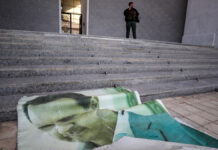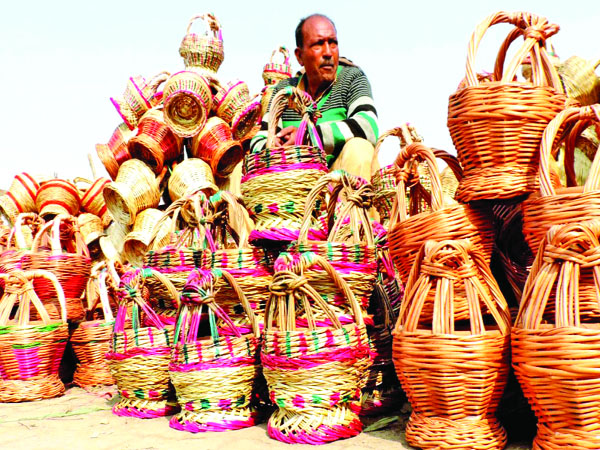DOGRA HERALD BUREAU
Srinagar, Dec 9
In a remarkable display of craftsmanship, Ali Mohammad Dar, an artisan from Charar-e-Sharief in central Kashmir, has given a new artistic dimension to the traditional “Kangri” or firepot.Jammu and Kashmir property listings
While “Kangri” is used in Kashmir solely for warmth during winter, Dar’s creations now double as exquisite decorative pieces, reflecting a blend of heritage and innovation.
The “Kangri” is an earthen pot encased in intricately woven wicker, typically filled with hot embers and used by Kashmiris beneath their traditional clothing called “Pheran” or inside a blanket to keep the chill at bay during the winter months.
The artisans like Dar are transforming this “kangri” into a symbol of art and culture, crafting intricate designs that are finding a place as home décor.
Dar, who has been practising this craft for over 50 years, has recently created four unique Kangris that have captivated onlookers and drawn widespread admiration.
“These are the first of their kind in the Kashmir Valley,” he said.
The process of creating these artistic Kangris is labour-intensive, requiring significant skill and dedication. Dar shared that it took him 20 days to complete the largest Kangri, while smaller ones required 10, 8, and 2 days, respectively.
“I have poured all my passion and experience into crafting these Kangris. They represent not just tradition but innovation,” he explained.
Though he has not set a fixed price for his creations, he is confident that customers will appreciate their unique value and reward his efforts accordingly. Dar likens his work to that of an artist perfecting their craft.
“Just as a painter strives to create better art, I constantly work to design better Kangris. This is my passion,” Dar said.
While Dar’s innovative approach has breathed new life into Kangri-making, he expressed concern over the declining number of artisans in the trade. The younger generation’s disinterest in learning the craft threatens its continuity.
“This industry has tremendous potential for employment, even in today’s era of modern tools and equipment. I work alone and support my family comfortably through this craft,” Dar said. “If promoted and preserved, Kangri-making could provide livelihoods to thousands.”
He appealed to the government to introduce schemes to support traditional crafts like Kangri-making. He believes such initiatives could help sustain and promote this heritage art form while providing a steady source of income for artisans.



























